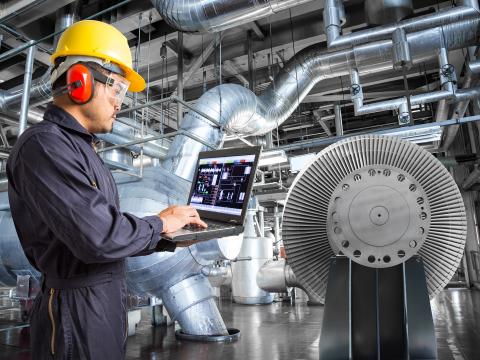Incoming: Great Changes Lie Ahead
I would like to use this final column as a summary and a reminder of what I believe is coming with technology and with some social issues.
It is hard to believe that a full year has passed and this is my final column for SIGNAL. I have greatly enjoyed writing these pieces, and I thank AFCEA for this opportunity. I have enjoyed and been enlightened by your feedback—good and bad—and I very much appreciated many of the discussions that happened because of these columns. I would like to use this final column as a summary and a reminder of what I believe is coming with technology and with some social issues.
5G and the 5G ecosystem are fast approaching. Within the next two years, you can truly expect to have “fiber in your pocket,” delivering speeds of more than 2 Gbps, with latency in the single-digit milliseconds. You will see an explosion of 5G-connected sensors in almost every aspect of life: health, transportation, defense, finance and agriculture, to name a few. Everyone and everything will be affected and disrupted: governments, companies and individuals alike.
5G and the associated ecosystem and technologies, such as artificial intelligence (AI), will have a greater impact than the printing press had in its day. 5G networks and ecosystems will attract the innovators and change agents that will drive future economies. The governments that invest in 5G technology first will win the future from an economic and security perspective. Corporations that embrace 5G will be the disrupters, not the disrupted. Individuals who adopt 5G technology will enhance their lives in ways they can’t even imagine at this point.
The great majority of 5G technologies and implementations will have huge benefits—both economically and socially—at the national, corporate and individual levels. As with anything new, however, some will choose to use it negatively to exploit people and organizations. The vast amounts of data created by the 5G ecosystem will be an attractive target for criminals and some nation-states.
While 5G offers many cybersecurity advantages and new possibilities for security applications, it must be architected correctly, and cyber basics must become even more important to individuals, governments and corporations. I encourage every public and private organization to take advantage of new technologies such as biometrics to make security easier for users and to improve overall cybersecurity and privacy protection.
Many different biometric security capabilities are available now and should be used in combination with each other. Multifactor identification and security is essential and can be made user-friendly. We need to eliminate passwords and cumbersome logon procedures. A mix of fingerprints, iris scans, face scans and swipes are available today on many devices. Although each of these can be manipulated singularly, in combination they are very effective and much more secure than passwords alone.
Artificial intelligence also must be applied correctly. It will be important for people to understand where AI is appropriate to make decisions and when a human must remain in the loop. AI will be essential as we use more machine-to-machine interface in everyday activities such as driving, surgery and security. Artificial and augmented intelligence have great promise to improve health care, public safety, defense and transportation, to name a few, but they also can be exploited if they are not well-protected. Security, just as in 5G network design, must be part of AI code from the beginning.
Another aspect of security we must improve and have an overall strategy and plan for is the supply chain. We must know that hardware components and software are developed securely, the source material is safe, and the final products stay secure during transit and delivery to the end user. This is an area that needs work and must have government and industry cooperation.
On the social front, we need to embrace diversity from all perspectives: cultural, race, gender and age. I believe it is imperative that we reach out to the youth of America—especially young women—to get them excited about careers in STEM. We also need to include senior female leaders in key speaking roles and panels at all events.
Our nation has benefited immensely from its diversity and will continue to see great value by endorsing an environment of inclusiveness. The melting pot effect has served America well and will continue to do so, and it will enable us to be the world’s leader in developing and promoting innovation.
Once again, thank you for this opportunity. I look forward to being a participating reader and know that whoever follows me will continue to promote great discussions on a wide variety of topics.
Merry Christmas, happy holidays, and wishes for a great new year to all.
Terry Halvorsen, the chief information officer (CIO) and an executive vice president with Samsung Electronics,
is the former U.S. Defense Department CIO. He also has served as the Department of the Navy CIO.
To share or comment on this article, go to http://url.afcea.org/December18




Comments